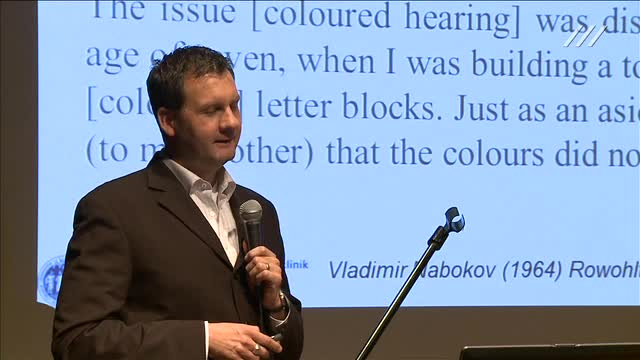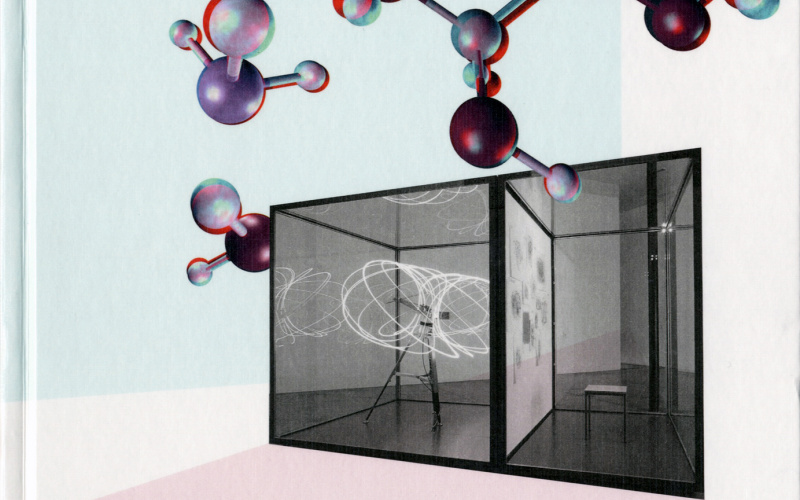Peter Weiss-Blankenhorn: Functional and Structural Imaging Insights Into the Neural Basis of Synaesthesia

- Date
- Duration
- 59:06
Description
In my talk I will review the structural and functional imaging studies on synaesthesia. Since many imaging studies have focused on grapheme-colour synaesthesia, the emphasis of my talk will reflect this, and so I will give a summary of the current knowledge about structural and functional brain differences in grapheme-colour synaesthetes in particular. Moreover, I will examine how these structural and functional imaging results might inform current theories about the neural mechanisms of synaesthesia. Initially, functional imaging studies concentrated on the phenomenology
of synaesthetic experiences: activation of colour-processing areas in the brain confirmed the “perceptual reality” of these experiences. Further studies explored the neural correlate of individual differences in synaesthesia with the help of functional imaging. Recently, modern network analysis methods have been applied in the field of synaesthesia to assess the neural network architecture during rest and task performance in grapheme-colour synaesthetes. These advances in functional imaging were paralleled by studies using structural imaging methods, like voxel-based morphometry (VBM) and diffusion tensor imaging (DTI) to explore grey and white matter differences in synaesthesia, respectively. Finally, I will also provide a critical discussion of the kinds of limitations found in previous approaches to studying synaesthetic brain differences, and I discuss future perspectives and challenges that structural and functional neuroimaging research in synaesthesia will face.
Prof. Dr. Peter Weiss-Blankenhorn studied medicine at the Heinrich-Heine-University Düsseldorf. After research projects on Parkinson’s disease in Arizona, USA, and on apraxia in Lyon, France, he was trained in neurology at the University Hospitals in Düsseldorf and Aachen, Germany. As a board-certified neurologist he works in the Institute of Neuroscience and Medicine (INM-3) of the Research Centre Jülich (FZJ), Germany, leading the group »Motor Cognition« Since 2010, he is also professor of cognitive neurology at the University of Cologne, Germany. In addition to synaesthesia, his scientific interests in the area of cognitive neurology are focused on the neural basis of cognitive deficits after stroke using structural and functional imaging. This translational research aims at the development of new, innovative therapies for neurorehabilitation.
